Menu
Menu
Zero Development Time | Instant Deployment | 30-Days Free Trial
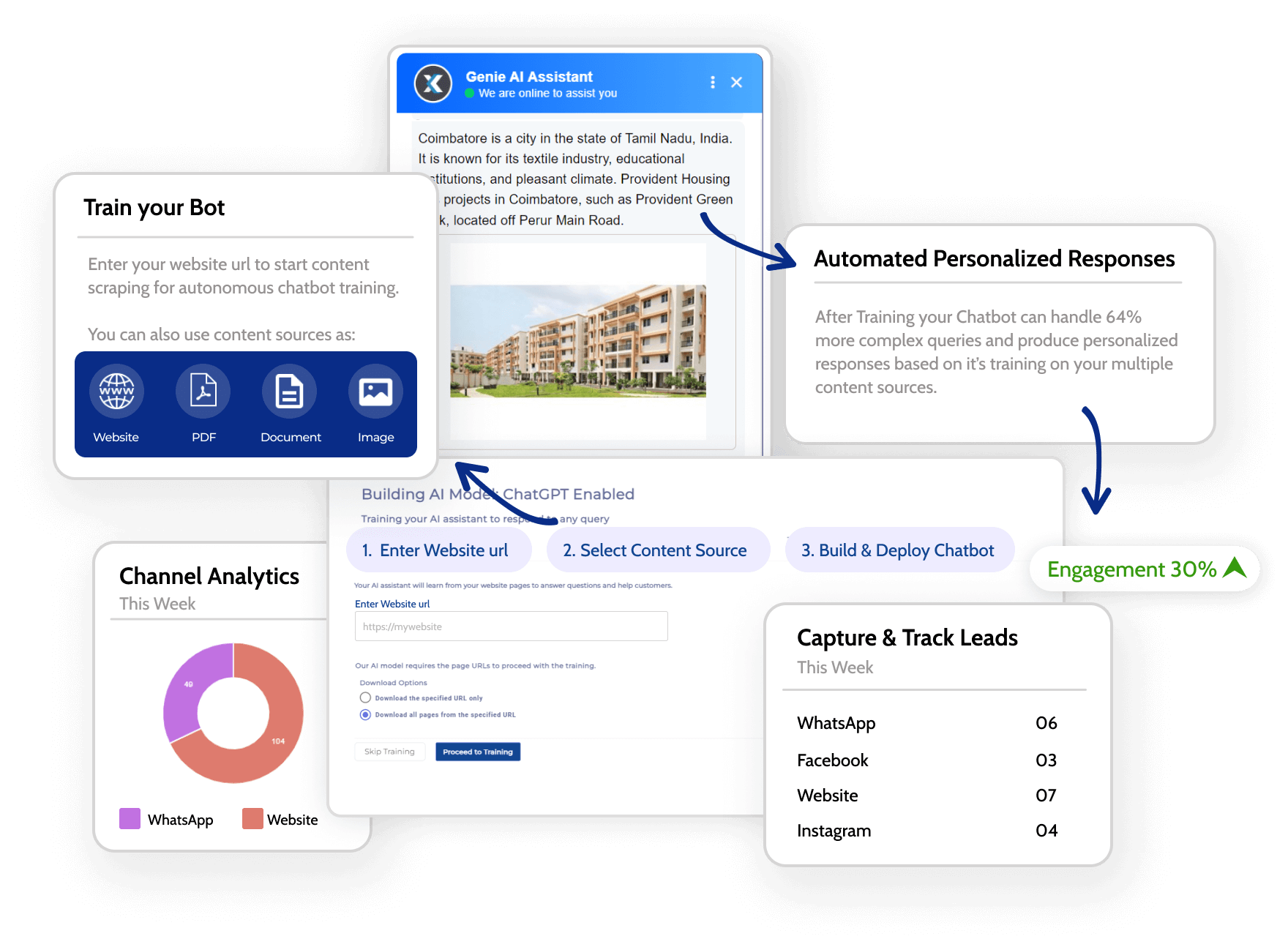













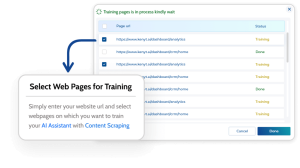
Kenyt’s self-serve AI Assistant effortlessly trains itself on the information from web pages and produces personalized responses from the information extracted. No more manual training for automated responses; just share URLs, and watch our assistant work its magic.
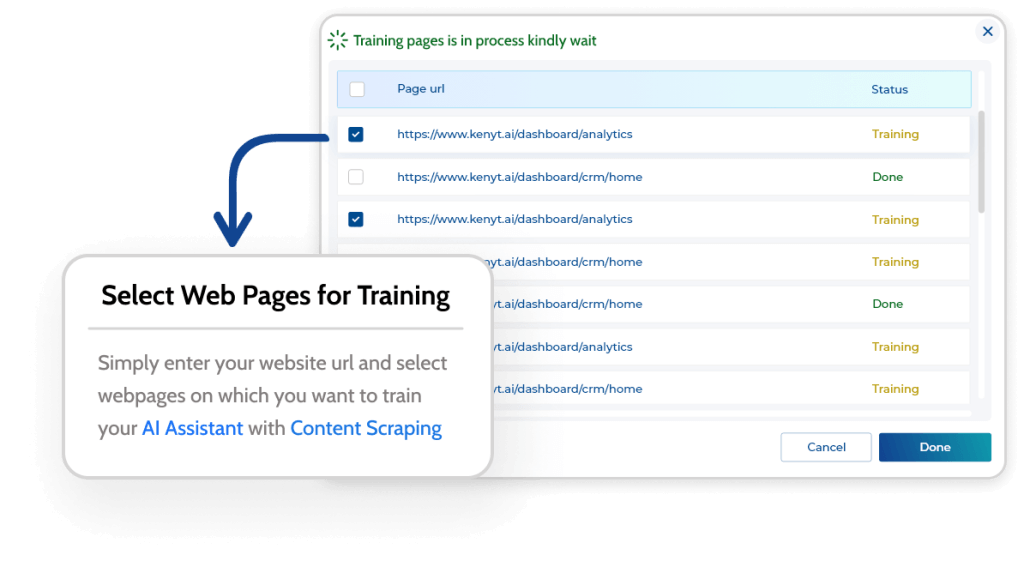
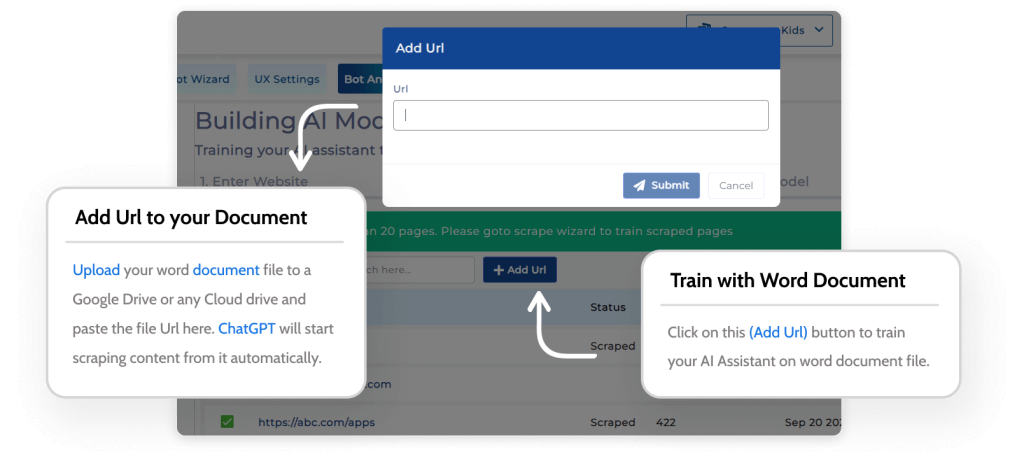
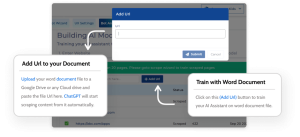
Our AI Assistant, powered by ChatGPT, can grasp technical details from your complex documentation to learn about your products/services & become an expert instantly.
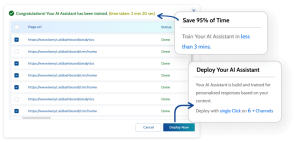
Say goodbye to lengthy training periods. Test and launch your AI Assistant in less than 3 minutes and save up to 95% time on development and testing.
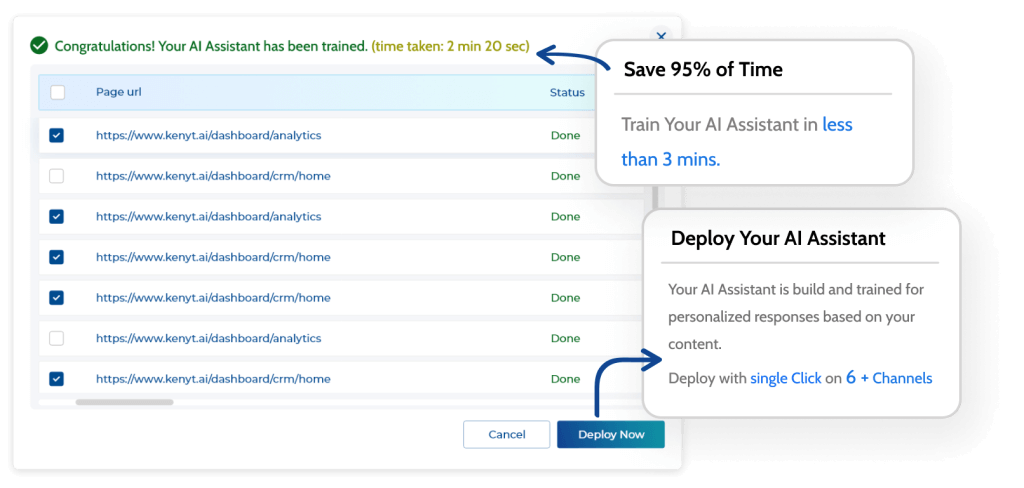
Get your 24/7 virtual ally trained on your information to produce responses strictly based on your product & services. Our self-serve AI Assistant supports 195+ languages and can respond to 67% more queries, including complex sentences.
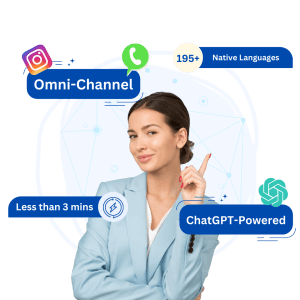
Start training your chatbot now for FREE!
AI assistants are a broad category of software that can understand and respond to natural language. They can be used for a variety of tasks, such as answering questions, generating creative text formats, translating languages, and writing different kinds of creative content. AI chatbots are a type of AI assistant that is designed to simulate conversation with human users. They are typically used for customer service or sales applications. Virtual assistants are a type of AI assistant that is designed to help users with a variety of tasks, such as managing their schedule, setting reminders, and controlling smart home devices. Voice assistants are a type of AI assistant that is controlled by voice commands. They are typically used for hands-free applications, such as controlling smart home devices or getting directions while driving.
AI assistants use a variety of technologies, including natural language processing (NLP) and machine learning (ML), to understand and respond to human language. NLP is used to break down user input into its parts, such as words and phrases. ML is used to train the AI assistant to recognize patterns in the data and generate responses that are consistent with those patterns.
An AI assistant is a digital application powered by artificial intelligence that performs various tasks to assist users. These tasks can include answering questions, providing information, setting reminders, sending notifications, controlling smart devices, and more. AI assistants use natural language processing (NLP) to understand and respond to user queries, making them versatile tools for tasks ranging from simple to complex.
An AI chatbot, short for "artificial intelligence chatbot," is a type of AI assistant designed for text or voice-based conversations with users. Chatbots use NLP and machine learning to interpret user input, engage in conversations, and provide relevant responses. They are commonly used in customer support, virtual assistants, and various applications where automated interactions are needed.
1. Rule-Based Chatbots: These chatbots operate on predefined rules and decision trees. They follow scripted responses and are limited in their ability to handle complex or unexpected queries.
2. AI-Powered Chatbots: AI chatbots utilize machine learning and NLP to understand and respond to user input. They can handle more natural and dynamic conversations, making them suitable for various tasks, including customer support.
3. Scripted Chatbots: Scripted chatbots are designed for specific tasks or industries and follow a predefined script. They excel in providing focused information or services, such as booking appointments or answering FAQs.
4. Hybrid Chatbots: Hybrid chatbots combine rule-based and AI-powered capabilities. They use predefined rules for structured tasks and AI for handling more complex inquiries. This approach offers flexibility and efficiency in various scenarios.
©2024. Kenyt Inc. All Rights Reserved.